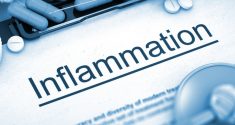Nutrient Deficiencies: How to Tell if You're at Risk and What You Can Do
Nutrient deficiencies can trigger a host of negative health effects within the body. Here is what you need to know about this global health issue, and what you can do to protect yourself and your family.
What Does it Mean to be Nutrient Deficient?
 According to the latest estimates, about one in nine people in the world do not have access to the right foods to ensure proper nutrition. While most of these deficiencies caused by lack of access to certain foods happen in developing countries, there are still many citizens of the Western world that suffer from deficiencies.
According to the latest estimates, about one in nine people in the world do not have access to the right foods to ensure proper nutrition. While most of these deficiencies caused by lack of access to certain foods happen in developing countries, there are still many citizens of the Western world that suffer from deficiencies.
There are a number of reasons why one may develop a nutrient deficiency. In addition to a lack of access to nutritious food, there are some medical conditions that prevent adequate food absorption. Drinking too much alcohol or the use of prescription medications can also inhibit nutrient absorption. Also, depending on your daily diet, you may just not be choosing the right foods to ensure adequate nutrition.
Signs and Complications of a Nutrient Deficiency
Different deficiencies will typically trigger different warning signs. However, there are a few generalized symptoms that you can expect from a deficiency. Some of the most common signs to be aware of include unintentional weight loss, lack of appetite, irritability, hair loss, dry and brittle nails, excessive fatigue and difficulties concentrating or remembering things.
These deficiencies can cause a myriad of serious health complications, affecting the heart, kidney, muscles and more. Pregnant women, athletes, those with special diets and the elderly are particularly at risk of experiencing a deficiency in some of the most key nutrients. Be sure to consult your healthcare provider if you suspect that a nutritional deficiency is negatively affecting your health.
Most Common Nutrient Deficiencies
While you can be deficient in a wide array of nutrients, there are a handful of nutrient deficiencies that tend to be more common.
Iron
Iron deficiency impacts more than 25 percent of the global population. Preschool children are the most deficient population, making it important that they eat plenty of iron-fortified foods. Iron deficiency is also common in menstruating women and vegetarians. The condition can lead to anemia, a weakened immune system and fatigue.
Vitamin D
Vitamin D deficiency is extremely common in the US with estimates of over 40 percent of the population not getting enough of this nutrient. Because the vitamin is produced when the skin is exposed to the sun, deficiency is more common during the winter months. It can be challenging to get adequate amounts of vitamin D through diet alone, making it important to look into supplementation.
Vitamin B12
Vitamin B12 is found primarily in animal sources, making the deficiency most common in vegetarians, vegans and the elderly. Because the body is unable to produce the vitamin on its own, you need to source it directly from foods or supplements.
Iodine
A deficiency in iodine can lead to an enlargement of the thyroid gland as well as developmental and cognitive abnormalities in growing children. You can find this mineral in seaweed, eggs, fish and dairy products.
Calcium
While most people understand the importance of calcium for bone health, they may not realize that this nutrient also serves as a signaling molecule helping to trigger a number of critical physiological functions. Low calcium intake is most prevalent in women and older adults.
Vitamin A
Vitamin A deficiency is most common in developing nations. Most Western countries enjoy diets plentiful in this nutrient. An inadequate intake of Vitamin A can lead to vision issues and blindness in addition to reduced immune function. All of these complications increase mortality rates across both genders.
Magnesium
The latest estimates put magnesium deficiency for the US population at nearly 70 percent, with even higher figures for senior citizens. A deficiency of magnesium is linked to an increased risk of heart disease, Type 2 diabetes, osteoporosis and more.
How to Guard Against Nutrient Deficiency
 Clearly, the best way to guard against these nutrient deficiencies is to be diligent about how you fuel your body. Eating a diet rich in vitamins and minerals is always the best approach. This means focusing on eating plenty of fresh fruits and vegetables, lean protein, low-fat dairy sources and whole grains. The more colorful that your plate is, the more varied that your diet likely will be.
Clearly, the best way to guard against these nutrient deficiencies is to be diligent about how you fuel your body. Eating a diet rich in vitamins and minerals is always the best approach. This means focusing on eating plenty of fresh fruits and vegetables, lean protein, low-fat dairy sources and whole grains. The more colorful that your plate is, the more varied that your diet likely will be.
If you feel as if your diet is not up to par or if you know that you are at a special risk for developing a deficiency, it is a good idea to include a targeted supplement in your daily routine. A supplement such as Vitachron serves as an extra layer of insurance for all of your nutritional needs. This supplement is chronobiologically formulated to meet the unique needs of men and women. By taking a supplement, you do not have to wonder if you are supplying your body with the nutrients that it needs for optimal health.
The bottom line is that it is important to listen to your body. Ignoring the signs of a deficiency and failing to take steps to address the issue may have serious impacts on your health both now and in the future.




